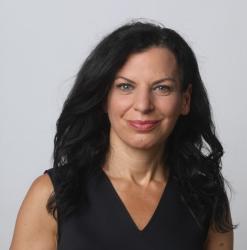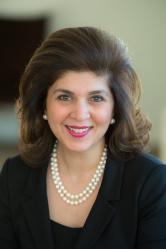

9:30 am EDT - 11:45 am EDT
Past Event
 Two decades later, the 9/11 attacks continue to shape American government, society, and foreign policy. Counterterrorism efforts — including an expansion of military activity, law enforcement operations, and intelligence powers — have succeeded in preventing similar attacks on U.S. soil. Today, the risk of jihadist terrorism no longer dominates the national security debate, and the most pressing challenges facing the United States and the international community emanate from great power competition and transnational threats such as climate change, pandemic disease, and malicious use of technology. Still, the withdrawal of U.S. troops from Afghanistan and the Taliban’s resumption of control over the country have revived concerns about terrorism and intensified the debate over America’s post-9/11 foreign policy. As we mark the 20th anniversary of the devastating attacks on the United States, it is essential that the lessons learned in the last two decades inform future decisions.
Two decades later, the 9/11 attacks continue to shape American government, society, and foreign policy. Counterterrorism efforts — including an expansion of military activity, law enforcement operations, and intelligence powers — have succeeded in preventing similar attacks on U.S. soil. Today, the risk of jihadist terrorism no longer dominates the national security debate, and the most pressing challenges facing the United States and the international community emanate from great power competition and transnational threats such as climate change, pandemic disease, and malicious use of technology. Still, the withdrawal of U.S. troops from Afghanistan and the Taliban’s resumption of control over the country have revived concerns about terrorism and intensified the debate over America’s post-9/11 foreign policy. As we mark the 20th anniversary of the devastating attacks on the United States, it is essential that the lessons learned in the last two decades inform future decisions.
On September 10, Brookings hosted an expert discussion on the legacies and lessons of September 11. The New Yorker’s Susan Glasser moderated a conversation with Ryan Crocker, who served as United States ambassador in Afghanistan and Iraq, and Brookings President John R. Allen, a retired U.S. Marine Corps four-star general, former commander of the NATO International Security Assistance Force and U.S. Forces in Afghanistan, and special presidential envoy to the Global Coalition to Counter ISIL. Then, panels of experts explored the legacy and lessons of September 11 for U.S. government and foreign policy.
Viewers submitted questions for speakers via email to [email protected] or via Twitter using #Sept11Lessons.
Moderator

Panelist


Moderator

Panelist



Alexander Noyes, Calin Trenkov-Wermuth
February 5, 2026

Vanda Felbab-Brown
June 23, 2025

Landry Signé
May 27, 2025